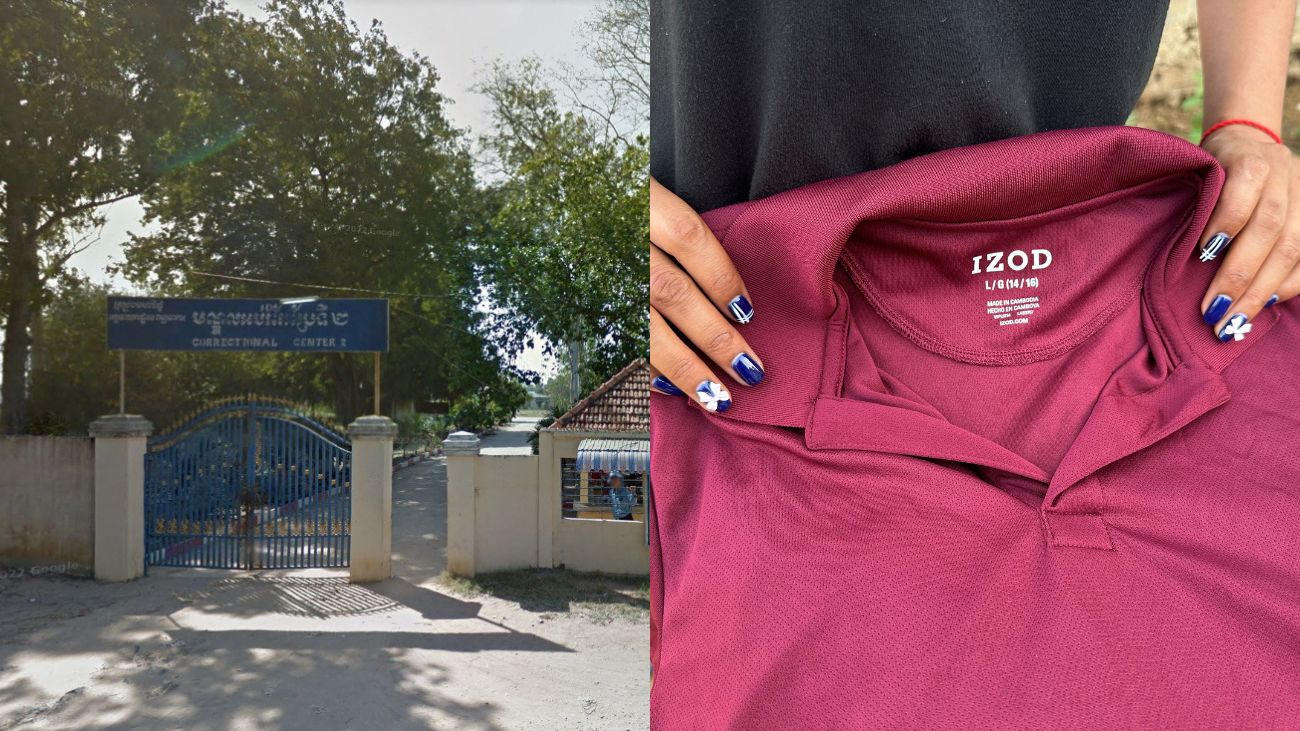On August 21, 2023, Walmart and Centric Brands found themselves embroiled in a supply chain controversy in Cambodia.
Allegations Against Walmart
Allegations surfaced that inmates at Cambodia’s largest women’s prison, Correctional Center 2 (CC2) near Phnom Penh, were involved in illegal garment production for export markets.
International trade of goods made by convicts is illegal in the United States and Cambodia, which has received preferential US trade terms on billions of dollars of products over recent years.

The American Apparel and Footwear Association (AAFA) brought attention to credible reports indicating that products, including garments and textile goods bound for the U.S., were being manufactured within the prison walls.

International trade of goods made by convicts is illegal in the US and in Cambodia, which has received preferential US trade terms on billions of dollars of products over recent years. The International Labour Organization (ILO), of which Cambodia is a member, permits prison labor provided it is not forced.
Goods produced at the women’s prison appeared to be linked to Walmart and a Centric partner, said four people familiar with the operation, including two former inmates of CC2.
They showed Reuters journalists what they said were two goods/products that were manufactured in the prison, which labels showed they were intended for export to the United States.
Walmart said the allegations were concerning.
Where Are The Goods Coming From
Goods could also have entered the European Union in the process.
Centric Brands said it had halted imports from a factory in Cambodia and would act immediately if a company sold goods produced in prisons.
In the U.S., inmates produce at least $11 billion worth of goods annually, the American Civil Liberties Union (ACLU) reported in 2022. The U.S. is the country with the highest prison rate in the world, and nearly two-thirds of inmates in federal and state prisons, about 800,000 people, do prison labor, according to the ACLU. In return, they receive an average of only 13 to 52 cents per hour.
International trade in prisoner-made goods is illegal in the U.S. and Cambodia. The International Labor Organization (ILO), of which Cambodia is a member, only allows prisoners to do voluntary labor.
2015: Walmart Suppliers Abuse in Cambodian Prison
The following information is from this 2015 article: Cambodia: Walmart & supplier factories deny labour abuses
Cambodian workers producing garments for global retail giant Walmart say they are subjected to a slew of workplace abuses ranging from forced labor to sexual harassment.
Employees at numerous Walmart supplier factories across the country have made the allegations, which were compiled in a recent study exposing the brand’s “heinous abuses” in three of the major countries in its Asian supply chain – Cambodia, India, and Indonesia. Factories contacted for this story denied the allegations, insisting that they complied with Cambodia’s Labour Law.
“We always respect the law and avoid anything that would affect workers rights,” said Chan Davuth, administrative manager at the Cambo Handsome factory, adding, “we often analyze the problems of the workers.”
Walmart, meanwhile, declined to respond to specific questions about the report but said it was committed to its Cambodian workers.
“Walmart is part of the International Labour Organization Better Factories Cambodia program, which covers all apparel and footwear factories in Cambodia,” the brand said. “In addition, we actively engage with other brands, NGOs, and the Cambodian government to support better transparency and dialogue among stakeholders.”
Check out this 2013 article about Walmart and H&M and the abuse of Cambodian workers here.
Get the news you need at It’s On News.


